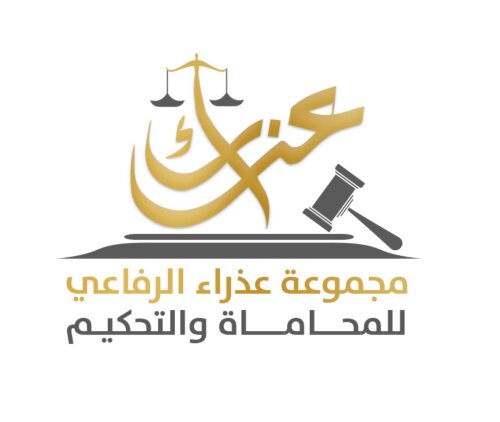Best Faith-Based Law Lawyers in Kuwait City
Share your needs with us, get contacted by law firms.
Free. Takes 2 min.
List of the best lawyers in Kuwait City, Kuwait
About Faith-Based Law in Kuwait City, Kuwait
In Kuwait City, Kuwait, faith-based law predominantly refers to the application of Islamic Sharia law, which is integrated into the country's legislative and judicial processes. The Kuwaiti legal system is a hybrid of Western-style legal practices and Sharia, reflecting the country's strong Islamic traditions and values. Faith-based law influences various aspects of daily life, including family law, inheritance, and personal status affairs. It's essential for residents and expatriates in Kuwait to understand how these religious principles impact legal matters within the country.
Why You May Need a Lawyer
There are numerous situations where individuals might require legal assistance under the framework of faith-based law in Kuwait City. Common scenarios include issues related to marriage, divorce, child custody, and inheritance, all of which are heavily influenced by Islamic principles. Business dealings, especially those concerning Islamic finance and contractual disputes that require Sharia compliance, also often necessitate legal expertise. Additionally, expatriates may need guidance to navigate the differences between Kuwaiti laws and their home country's regulations.
Local Laws Overview
Faith-based laws in Kuwait are primarily codified in the Personal Status Law, which covers family law matters like marriage, divorce, and inheritance. Women, for example, may face specific legal challenges due to the patriarchal nature of Islamic law as applied in Kuwait. Business laws also adhere to Sharia principles, particularly in finance, where Islamic banking laws prohibit interest and enforce profit-sharing arrangements. Understanding these key aspects is crucial for anyone who might encounter legal issues in Kuwait.
Frequently Asked Questions
What is the role of Sharia Law in Kuwait?
Sharia Law plays a foundational role in Kuwait, influencing its legal system, especially concerning personal status matters like marriage, divorce, and inheritance.
Can expatriates marry under Sharia Law in Kuwait?
Yes, expatriates can marry under Sharia Law in Kuwait, but it's advised to consult with a lawyer as there might be specific requirements and legal implications.
How does Kuwait handle divorce cases?
Divorce in Kuwait can be initiated by either party, but the processes and rights may differ based on gender, adhering to Islamic laws. Legal guidance is recommended to navigate these complexities.
Is Islamic finance mandatory in Kuwait?
While conventional banking exists, Islamic finance is highly prevalent, especially for Muslims, due to its compliance with local faith-based laws.
What happens to inheritance under Sharia Law?
Inheritance under Sharia Law follows specific distribution rules outlined in the Quran. Legal representation can ensure proper adherence to these rules.
Are there any legal protections for women under Kuwaiti Law?
Yes, there are protections, but they are framed within the context of Sharia. Women may face limitations compared to men, necessitating legal advice in some cases.
Can non-Muslims seek justice in Kuwaiti courts?
Yes, Kuwaiti courts serve non-Muslims, but certain cases, especially personal status issues, may still fall under Sharia's influence.
How are child custody matters resolved?
Child custody is typically decided based on the child’s best interest, considering Islamic principles. Mothers often gain custody till a certain age unless specific conditions dictate otherwise.
What is the importance of legal representation in faith-based disputes?
Legal representation helps in understanding complex faith-based statutes and ensuring that an individual's rights are upheld according to Kuwait's laws.
How can one enforce a contract under Sharia Law?
Contracts under Sharia Law must comply with Islamic principles, and enforcing them may require legal assistance to resolve disputes amicably and legally.
Additional Resources
Accessing resources like the Ministry of Justice in Kuwait can provide information on faith-based laws. The Kuwait Bar Association might also offer lists of legal practitioners specializing in Sharia Law. Additionally, community centers and religious institutions can serve as valuable sources of advice and support.
Next Steps
If you need legal assistance in Faith-Based Law, the first step is to consult with a lawyer who specializes in this area to understand your rights and obligations within the framework of Kuwaiti law. Preparing necessary documentation and clearly outlining your legal issue will facilitate a smoother consultation process. Consider reaching out to reputable legal firms in Kuwait City that have a focus on faith-based legal systems, and set up a meeting to discuss your situation in detail.
Lawzana helps you find the best lawyers and law firms in Kuwait City through a curated and pre-screened list of qualified legal professionals. Our platform offers rankings and detailed profiles of attorneys and law firms, allowing you to compare based on practice areas, including Faith-Based Law, experience, and client feedback.
Each profile includes a description of the firm's areas of practice, client reviews, team members and partners, year of establishment, spoken languages, office locations, contact information, social media presence, and any published articles or resources. Most firms on our platform speak English and are experienced in both local and international legal matters.
Get a quote from top-rated law firms in Kuwait City, Kuwait — quickly, securely, and without unnecessary hassle.
Disclaimer:
The information provided on this page is for general informational purposes only and does not constitute legal advice. While we strive to ensure the accuracy and relevance of the content, legal information may change over time, and interpretations of the law can vary. You should always consult with a qualified legal professional for advice specific to your situation.
We disclaim all liability for actions taken or not taken based on the content of this page. If you believe any information is incorrect or outdated, please contact us, and we will review and update it where appropriate.









